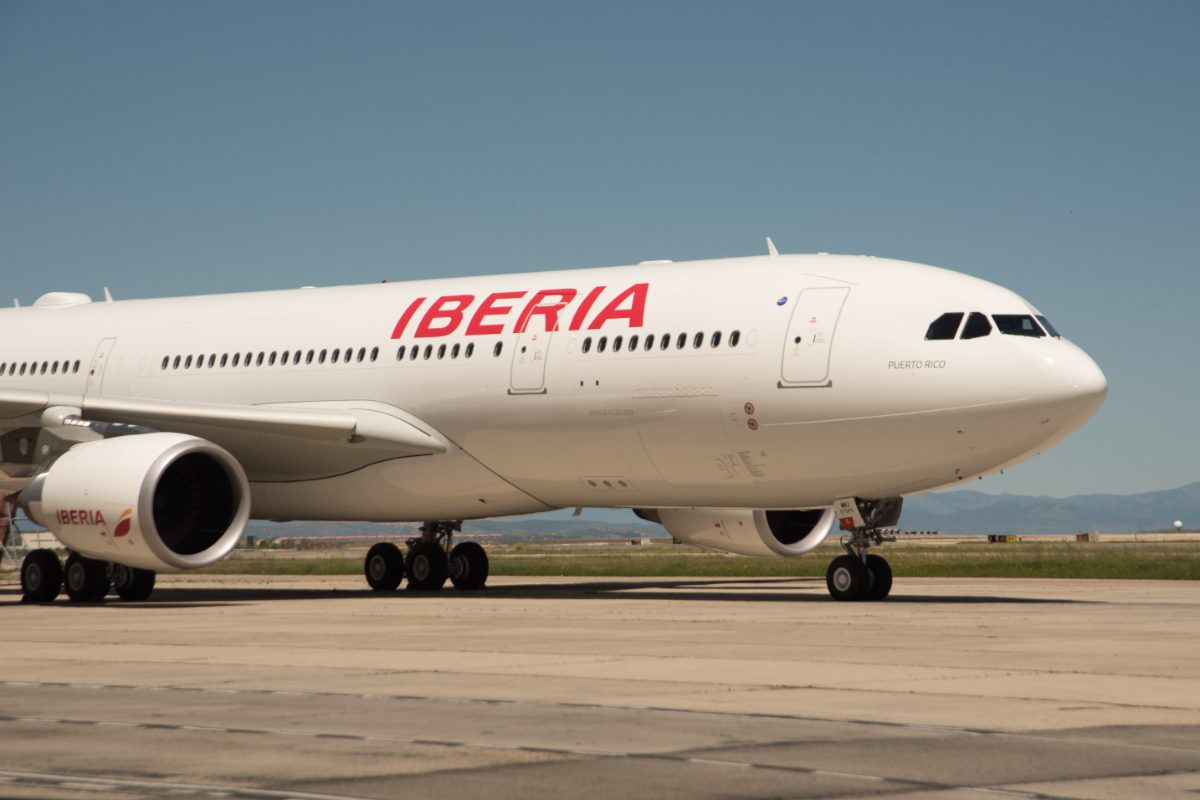Skift Take
The Spanish flag carrier is overhauling its distribution process and plans to introduce new products in 2022. Its story provides insight into a flurry of announcements by other carriers aiming to make similar moves.
Iberia said its distribution overhaul will speed up its ability in 2022 to roll out new products, such as by letting the Spanish flag carrier more easily bundle seats with ancillaries at new price points.
“The technology we’ve adopted is more agile and is going to allow us to develop new products in a faster way,” said Celia Muñoz Espin, sales strategy and distribution director at Iberia. “It’s about competitiveness and getting more revenue.”
Iberia’s story provides insight into a recent flurry of similar moves by other airlines. Many executives now believe that selling seats and ancillaries more nimbly could bolster larger carriers’ competitiveness.
It’s well known that airlines seek relative advantage by cutting costs and boosting productivity. But distribution technology — namely, smarter software for pricing, bundling, and distributing airfares and upsells to travel agencies — is increasingly seen as giving early adopters an edge, too.
Iberia’s parent company International Airlines Group (IAG) said on Thursday it had signed a deal to begin providing airfares and ancillaries from Iberia, Aer Lingus, British Airways, and Vueling to travel agencies that use Travelport’s distribution systems via next-generation connectivity methods.
Several large airline groups have been signing similar deals with the tech middlemen who distribute content to agencies: Amadeus, Sabre, Travelport, and Travelsky. On Tuesday, Air France-KLM signed a similar deal with Travelport after it had signed a similar deal first with Amadeus. Lufthansa Group has recently negotiated similar agreements with Travelport and Sabre.
All of the changes involve switching from old technical methods, known by the shorthand “Edifact,” to a newer process referred to loosely as the “New Distribution Capability (NDC).”
Iberia believes that smartening up its back-end tech will give it an edge.
Cost savings is one factor. The new deals include commercial terms more favorable to airlines.
Competition among vendors is the explanation. In the past, large airlines relied almost exclusively on Amadeus, Sabre, Travelport, and Travelsky for reaching travel management agencies that serve the most lucrative corporate customers. The newer technology for distribution promises to open the playing field to more participants. That gives airlines leverage when negotiating contracts with vendors.
For example, Iberia said in November it had signed a connectivity deal with Kyte, one of several upstart tech vendors offering NDC-based distribution for airlines to customers.
Cutting third-party distribution costs is more of a short-term, one-off gain. Growing revenue is a tantalizing opportunity.
“The main advantage is not the cost reduction for the airline,” said Muñoz Espin. “It’s more of the revenue we are going to be able to achieve.”
The comments come a few months after Luis Gallego, IAG’s CEO, said in a webinar that he expected IAG and its largest airline group competitors to gain share during expected consolidation in the market.
One of Iberia’s plays at competitiveness is what it calls “additional price points.” Essentially, the new technology lets the airline offer more prices at any one time. That increases the chance of offering a price that will appeal to a traveler.
Today agencies connecting to Iberia via NDC pipes can access these additional prices, and the deal with Travelport means the tech company is going to provide these fares to its agencies for the first time.
Here’s some backstory on the new pricing. Most large airlines set their fares in 26 stair-step levels. As part of this traditional airline pricing, each class has a band of fares. When seats sell out in one class, computers typically offer seats in a more expensive class. Airlines can find workarounds, such as branded fares and fare families, but those can be difficult.
The new experiments in pricing aim to be more precise. They provide customers a fare without needing to round the fare artificially due to a technical limitation in the distribution of offers.
Industry change has been slow, however. Only approximately 10 percent of transactions are being processed by “direct connections” and NDC-style pipes, up from approximately 5 percent in 2019, according to estimates by research firm T2RL.
“We probably haven’t seen the level of adoption of NDC by agencies as we would have expected without the pandemic,” said Chris Ramm, vice president global enterprise, air partners at Travelport.
In theory, the early airline adopters will gain the most by being ahead of the curve. In practice, early adopters are being penalized because they’re investing now in new tech but may not see the full benefits until travel agencies widely accept the new processes.
Market leaders like Travelport continue to have an edge because of their existing scale and reach.
“For us, technology providers like Travelport are important because they already have a strong presence in much of the corporate market,” said Muñoz Espin. “That’s especially true in highly relevant markets for us such as Portugal, for example.”
Looking ahead, Iberia aims to put new products in the market that bundle seats with ancillaries in more compelling ways than what rivals offer. The new technology will let them test products faster, too, the executive said.
“Our focus now is on developing new ways of bundling new ancillaries with fare families,” Muñoz Espin said. “With NDC, it will be a much quicker process to implement. Our distribution team is working with the revenue management, IT, and sales teams for a coordinated product introduction next year.”
Have a confidential tip for Skift? Get in touch
Tags: distribution, gds, iberia, ndc, new distribution capability, travelport
Photo credit: An Iberia plane on the tarmac in Barcelona. Source: Iberia. Iberia


